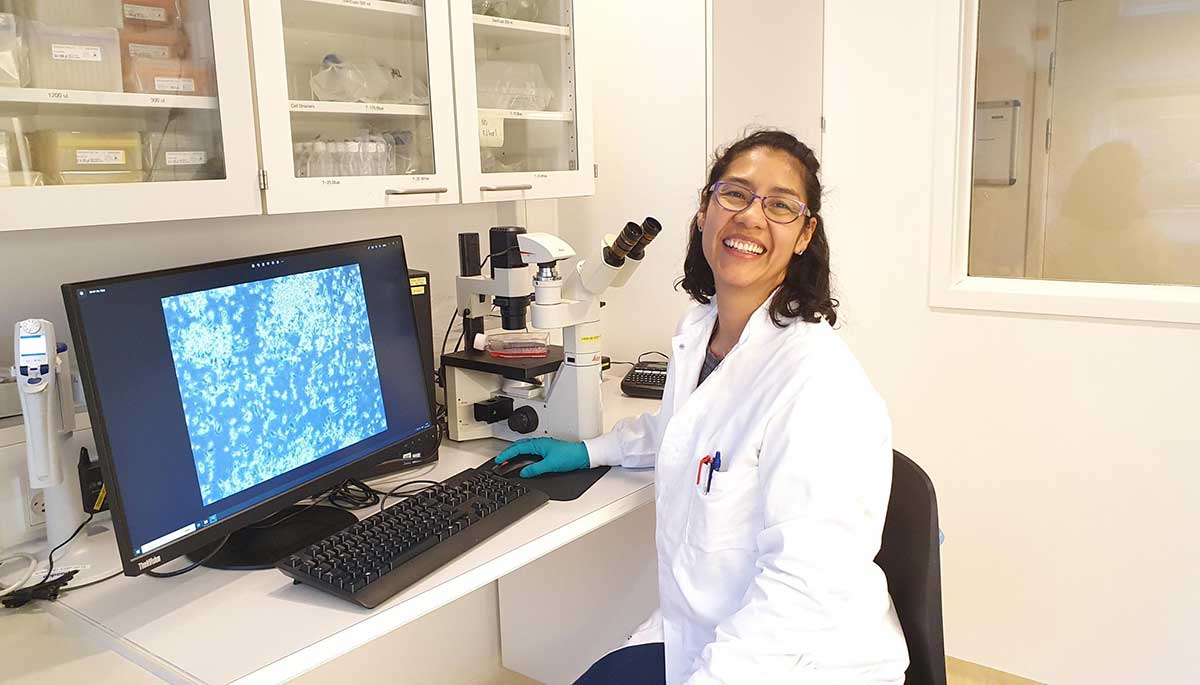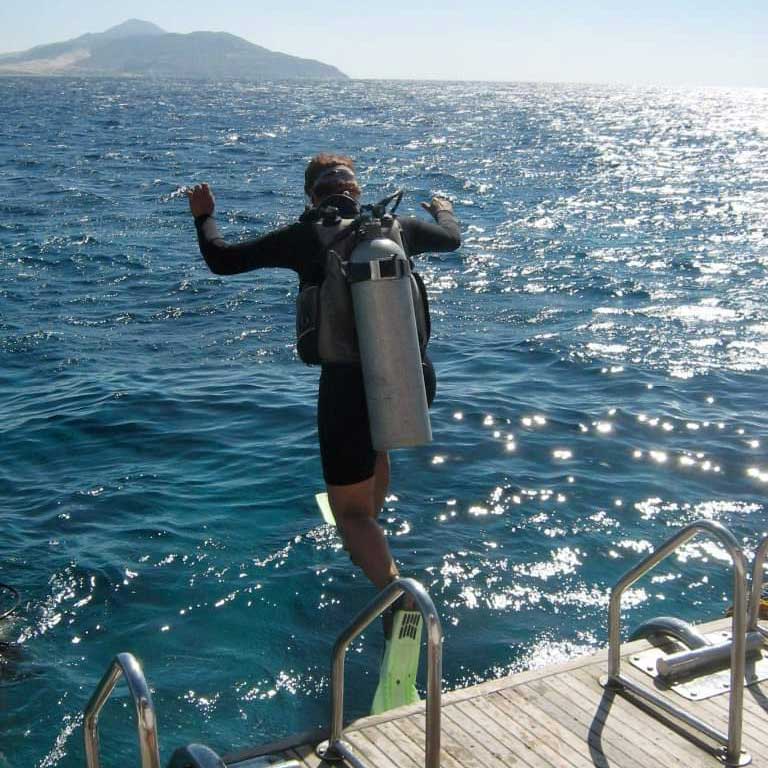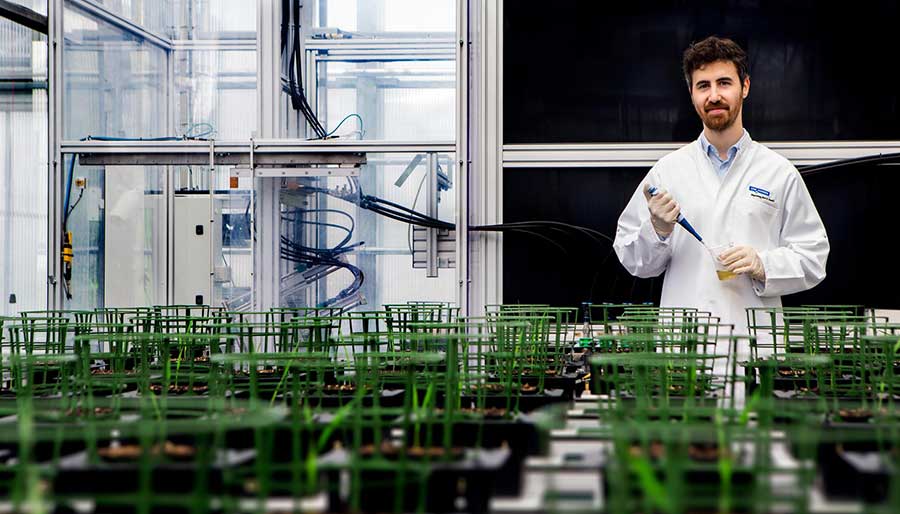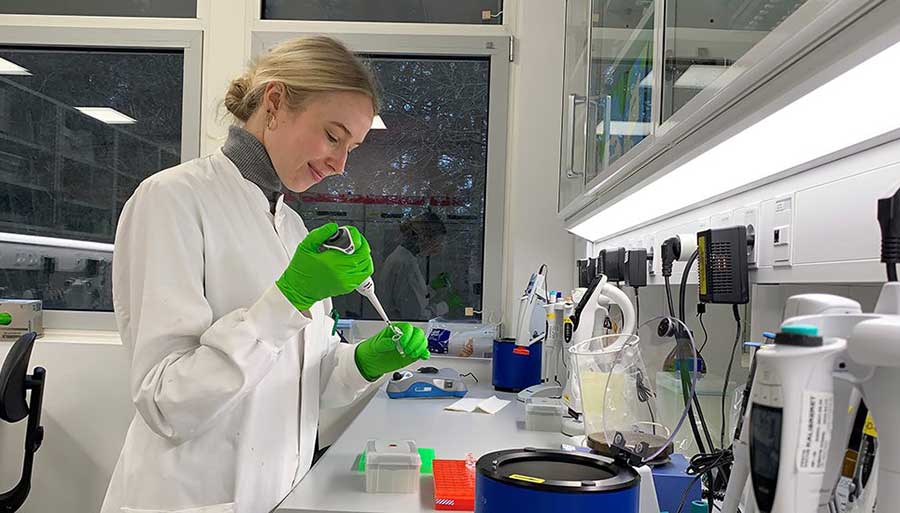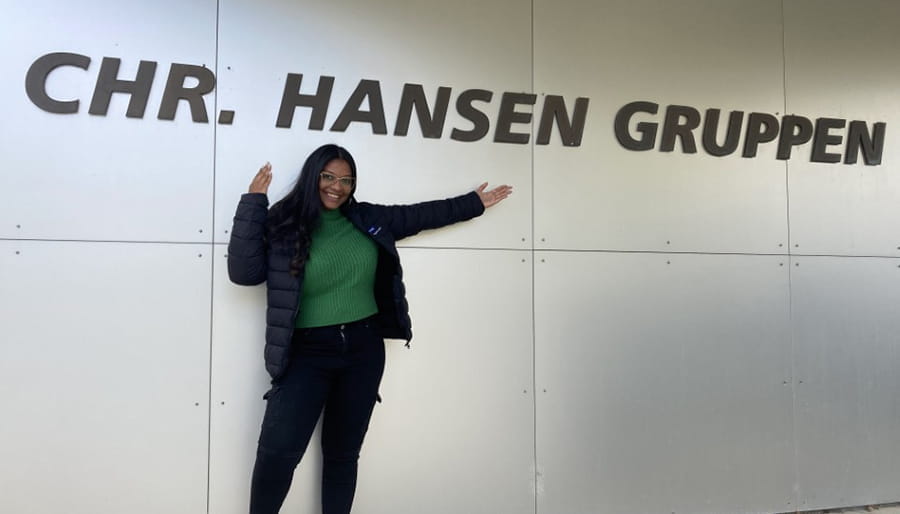Why did you choose to work within science?
Curiosity. I have always been curious. Since I was a child, I loved to find new things, I wanted to understand how things worked and how to fix them. By things I mean – examples such as cells, animals and ecosystems. Science gives me all that – the challenge of trying to understand how things work, finding ways to fix them when they don’t work and the excitement of finding new things.
You have now been with Chr. Hansen for five years. Can you describe your role and your primary tasks?
I’m responsible for our Human Health immune platform. We study how our bacterial strains interact with the immune system. We of course want to make sure that they are safe, but also to understand what the mechanisms behind their beneficial effects are, or which strains can be used for which purposes.
For me being a Hansenite means that I come every day to a workplace where I am heard, and I am valued. It means belonging to a place where we can help others and train each other and build amazing science together.
What does a typical workday look like?
Besides meetings to align on what to develop, I do literature searches, experimental planning and then the actual lab work. I love to spend a lot of time in the lab together with my amazing colleagues. We have best-in-class equipment and are encouraged to set up and optimize new techniques. After the experiments are done, I need to analyze the data, get the conclusions and present them back to the project groups.
During your career, is there anyone who has inspired you?
It sounds a bit cheesy but the first person to inspire me was my mother, and she is definitely not a scientist, but a woman who against a lot of odds raised me and taught me to follow my dreams and passion, to work hard for what I considered important in life and to enjoy what I do.
You need to love what you do. Passion gives you the motivation to work for what you want.
What do you do to inspire other women and girls within this field?
I really enjoy teaching and supervising students or colleagues. In the last few years, I have been invited as a speaker at a master’s course at DTU. I have also had the opportunity to participate in career and sciences forums where I have shared my experience.
What has your professional journey within science and research looked like?
I come from Colombia where I did my bachelor’s in marine biology. Afterward, I was awarded a fellowship from the Dutch government and chose to study an MSc in applied zoology at Wageningen University, where I started specializing in Immunology.
After this, I wanted to continue my education with a Ph.D. and applied for a position within a Marie Curie training network at the Technical University of Denmark (DTU). There, I studied the immune modulatory effect of beta-glucans during wound healing and after that a short Postdoc on immune toxicology.
Have you been a mentor for younger women during your career?
Yes, I am lucky to have great women in our team who are eager to learn new techniques and develop new assays in the lab. I like to think that we train each other. We all have different backgrounds and help each other with our expertise. I have also guided Colombian students to apply for fellowships or job positions here in Europe.

